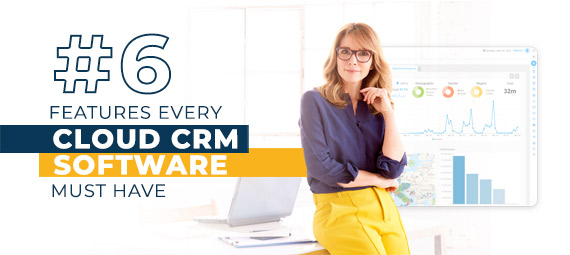
For the modern day enterprise of all sizes, a Customer Relationship Management (CRM) solution is key to managing the entire order to cash (O2C) process. With cloud-based applications being the norm now, organizations are rapidly moving to a cloud CRM software to leverage the flexibility and scalability offered by such a solution.
Benefits of Cloud CRM software solutions
A cloud CRM software acts as the custodian of all aspects related to customers and how the organization works with them in acquiring, servicing and maintaining a customer. When a CRM software is provisioned as a service, more commonly known as Software as a Service or SaaS model, the overhead of maintaining the application and related infrastructure also goes away. This makes the Cloud CRM software cost efficient and provides a lower total cost of ownership to the organization.
Key Features of Cloud CRM Solutions
Let us look at a few key features that every cloud CRM software should possess for organizations to derive significant benefits from it.
#1 Contact and Lead Management
Individuals within your organization may interact with external business partners in different capacities. This leads to inconsistent leads records and often in ill-maintained, redundant contact information across various systems.
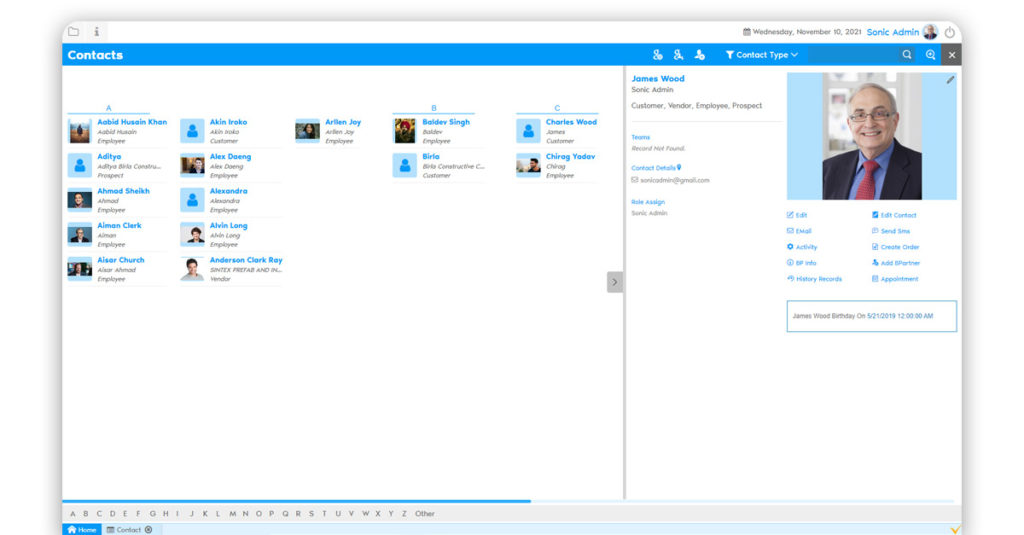
For a Cloud CRM software, the Contact Management function is at the core and a robust Cloud CRM solution will be able to integrate with various applications that have the organization’s external business partners’ data and reconcile, de-duplicate and streamline contact management into a reliable source of lead data.
#2 Sales Funnel Management
Depending on the kind of customers an organization serves, the sales process may vary across organizations. For instance, the process of acquiring customers for a Direct-to-customer (D2C) brand would be very different from that of Business-to-business (B2B) companies.
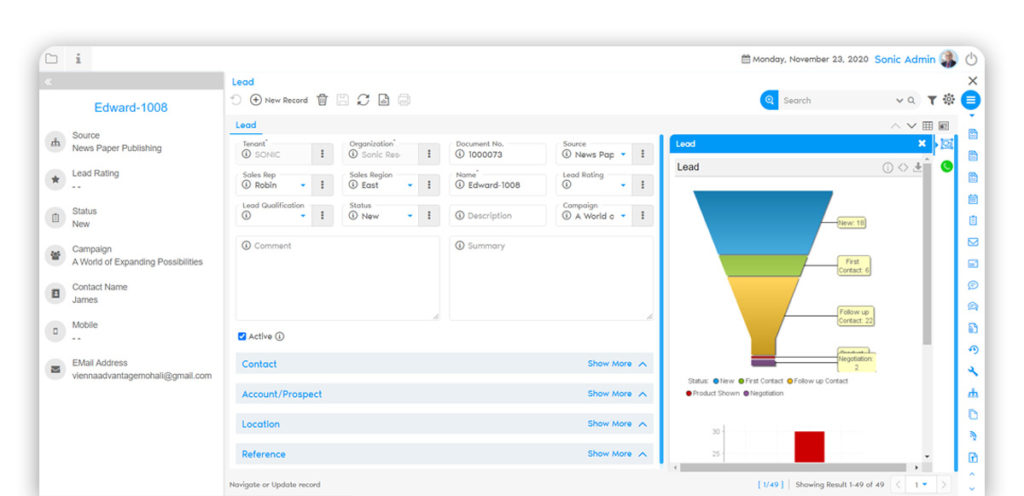
The process of managing various stages of acquisition of customers is known as “sales funnel management”. A suitable Cloud CRM software should act as a digital twin of your sales funnel management process and should give your sales teams the ability to record deal origination and monitor the deal progress and closure.
#3 Campaign Management
Campaigns are an integral part of any marketing activity that directly or indirectly results in generation of leads and filing up to the top of your sales funnel. While deciding on a Cloud CRM software, you would want to evaluate various CRM systems on their ability to define, plan and run a campaign. As the campaign runs, the Cloud CRM software should be able to link the dollar spent on it and provide a return on investment on the campaign throughout the life of a lead generated from the corresponding campaign.
Therefore, the campaign management should be able to track the quality of leads generated by giving your sales teams the visibility on the percentage of qualified leads and the eventual deal closures that resulted from the campaign. Additionally, the campaign planner in the CRM system should provide your marketing team with flexible options to define campaign targets – both through configurable lead characteristics and the ability to flexibly define various target lists.
#4 Embedded Document Management System
During the lifecycle of your Cloud CRM software, your sales and marketing personnel manage a host of documents and other media assets that relate directly to your sales and marketing activities. When you choose a Cloud CRM system for your organization, you must ensure that the solution provides for an embedded Document Management System (DMS) that provides the ability to store documents, collaterals and other media files in the context of the CRM record. Several organizations that implemented a CRM system without an embedded DMS, ended up with their media and content data spread across a variety of applications – from emails to messaging apps – losing the ability to have an enterprise-wide single source of truth related to their CRM records.
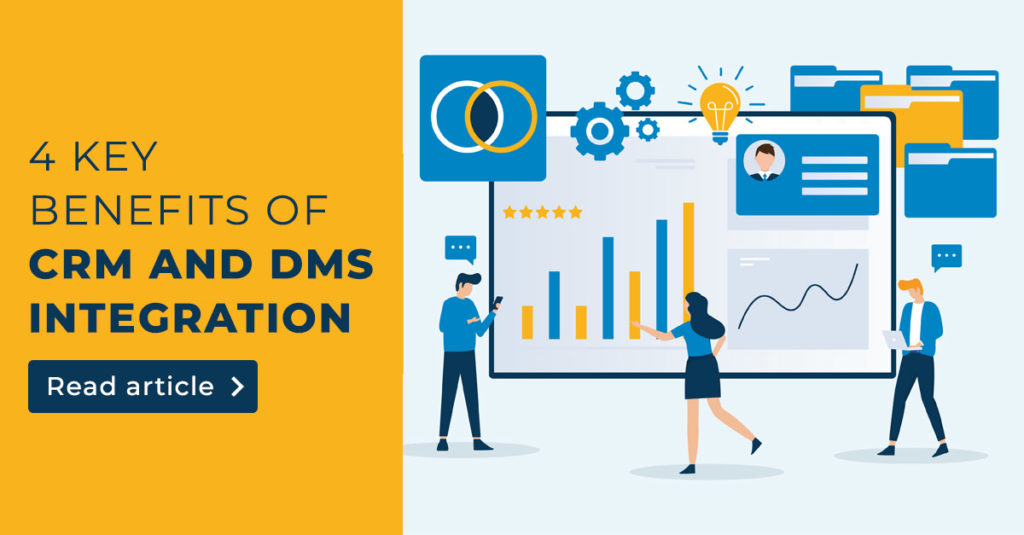
#5 Dashboards and Analytics
A core element of a robust and reliable Cloud CRM software is the breadth and depth of sales and marketing analytics it can provide. It is important to establish the performance of prospective solutions on their reporting and analytics capabilities. For instance, your sales teams present weekly and monthly status reports to the sales leadership. A usable CRM solution should provide you the ability to create storyboards and presentations that are created directly from the underlying transactional data in your CRM system – and not have your sales personnel repetitively creating these presentations for such periodic review meetings.
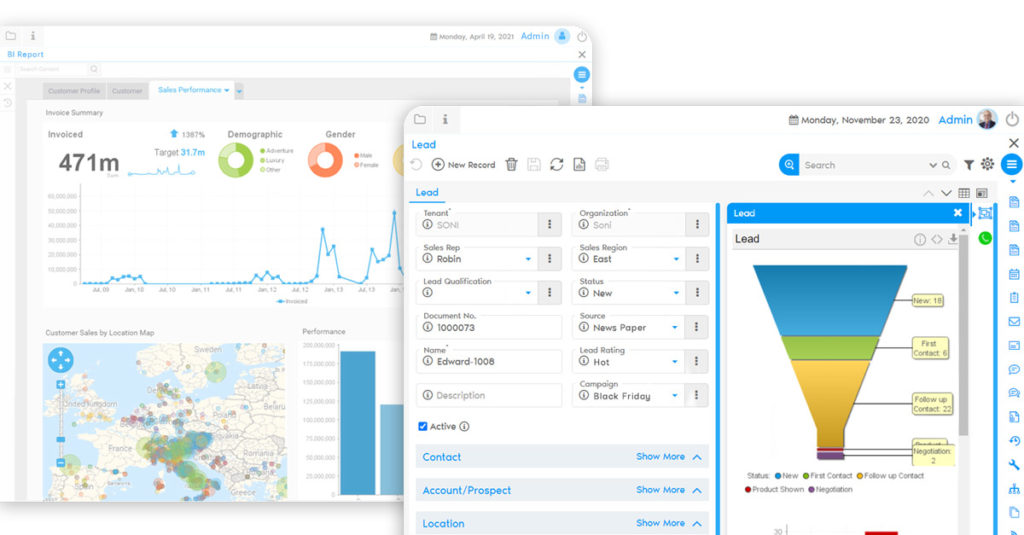
Secondly, actionable insights on progression of sales opportunities across leads should be visible to both the leadership and respective sales teams for them to react to changes in deal situations.
#6 Integration capabilities
Cloud CRM systems rarely ever exist in isolation in this day and age of multi-modal communication that sales personnel engage in. A suitable Cloud CRM application, should therefore, provide ample possibilities to integrate with third party communication and messaging applications – from emailing to chat applications. Because maintaining a communication trail is so critical to manage key personnel risks, the Cloud CRM software should allow for integration using industry standard protocols and methods.
Summary
We believe these key features are crucial for any cloud CRM software in order for organizations to derive maximum benefits from the solution. As always, specific functions will vary depending on the industry sector that the organization operates in.
For example, retail organizations would need a CRM that has robust campaign management capabilities, whereas a heavy manufacturing company would require a strong sales funnel management feature to move upsell and cross-sell opportunities within a large institutional client.
Whatever your requirements, VIENNA Advantage offers a comprehensive cloud CRM that can help organizations of all sizes manage their customers relationships and sales processes.
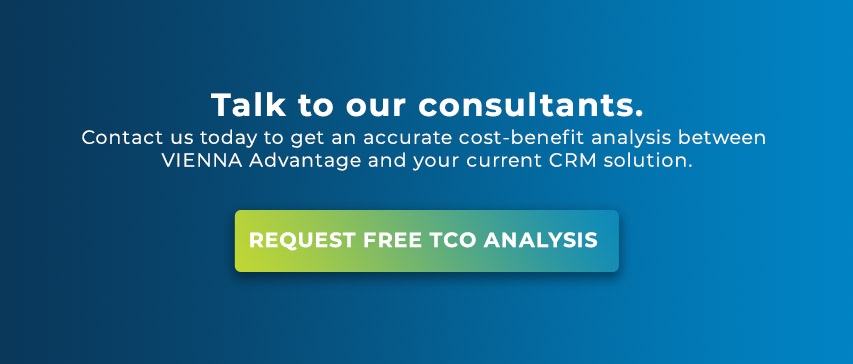
Continue reading:
How to Select a CRM Software – Free CRM Evaluation Checklist
9 Reasons why your company needs CRM Solution?
History and Evolution of CRM Software